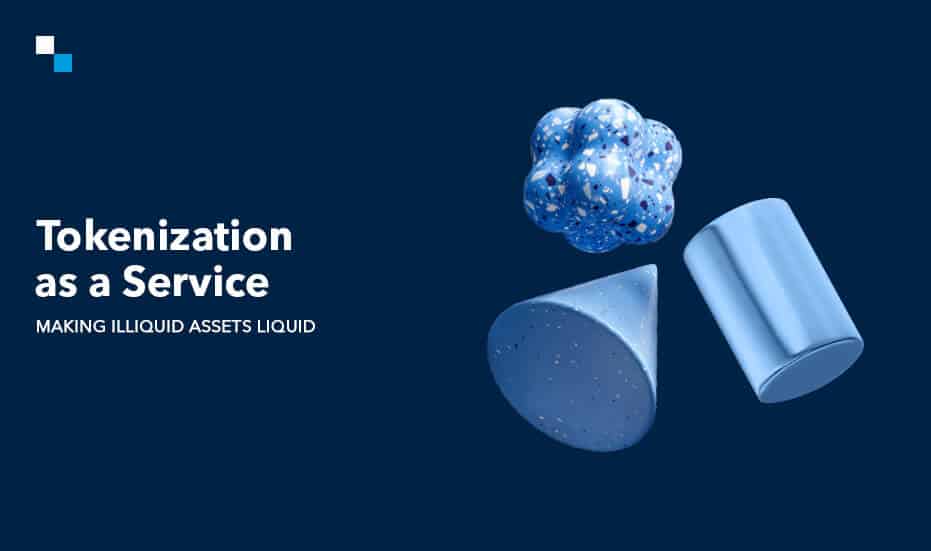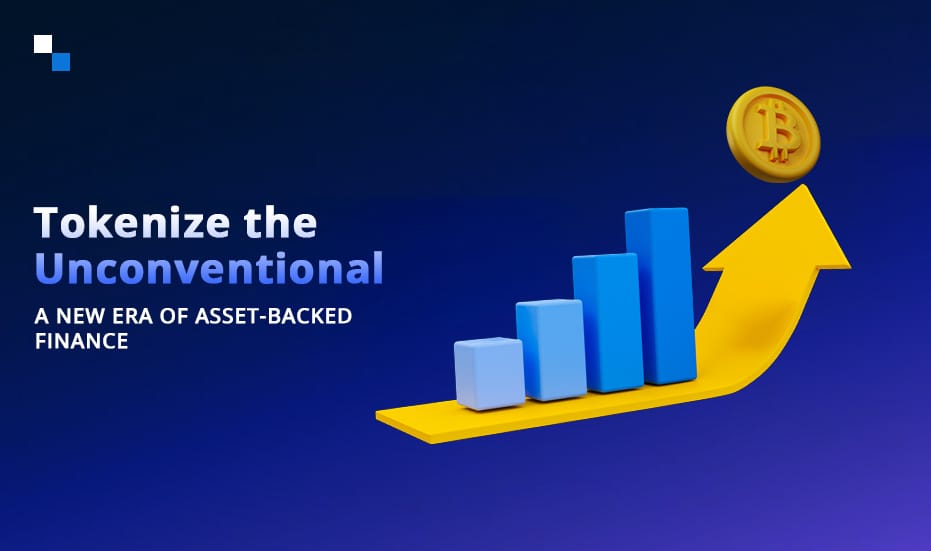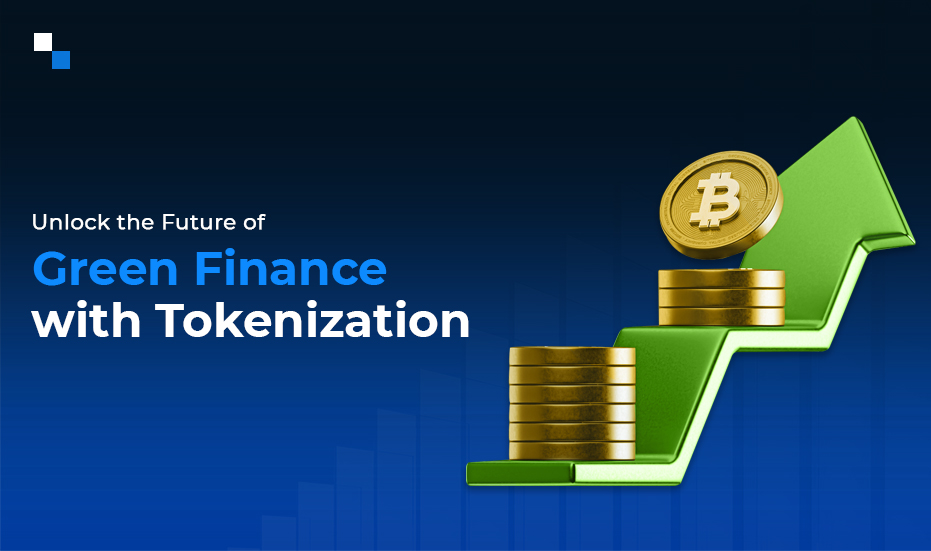
Choose the best Bitcoin Lightning Network Wallet for Global Payments
August 2, 2024
Significance of Real-Time Analytics and Monitoring in Automated Crypto Trading Platforms
August 2, 2024Web3 is building the future of the internet by enabling ownership rights across borders, allowing investors to claim a real stake in the digital products they love. This is made possible through tokenization, a unique way that helps businesses leverage blockchain technology to provide value for their customers. Independent research by industry experts’ projects that the tokenization market will reach $5.6 billion by 2026, reflecting the opportunity organizations should realize and maximize.
In the changing landscape of finance and digital assets, the concept of liquidity has taken a radical new meaning. Traditionally, the world of liquidity was led and dominated by traditional assets like stocks, bonds, and real estate. Representing illiquid assets on blockchain networks through the enablement of Tokenization as a Service opens up new avenues for liquidity. Enterprise-grade tokenization platform empowers business enterprises and individual investors to access liquidity in ways previously unimaginable.
Understanding Tokenization
Understanding tokenization means realizing something transformational in digital asset management. Put simply, tokenization is a process for digitizing an asset on a blockchain. This might represent anything from real estate and art to financial instruments and even intellectual property. Big-sized illiquid assets are trenched into small, fungible pieces, increasing liquidity and accessibility through tokenization. An End-to-End tokenization platform plays a significant role in completing this procedure. It provides a complete solution to manage everything concerning tokenization. It will encapsulate all steps from the initial evaluation of assets to the creation of tokens in compliance, issuance, and support to secondary markets. Tokenization ensures transparency, security, and immutability of ownership records due to blockchain technology. It also enables fractional ownership, global trading, and efficient asset management.
The Role of Tokenization as a Service
Tokenization as a Service (TaaS) is a platform-based service that provides an opportunity for companies and individuals to turn their assets into tokens without deep technical knowledge or infrastructure. TaaS acts to a great extent as an intermediary between asset owners and the blockchain ecosystem, offering the necessary instruments for successful tokenization: safety, compliance, and user-friendliness.
An enterprise-grade tokenization platform can help businesses that intend to enter this space with a scalable, secure, and robust solution. Such platforms are meant to help organizations navigate complexities around tokenization while ensuring adherence to regulatory frameworks and market standards.
The Promise of Liquidity
One of the main benefits of Tokenization as a Service is that it can unleash liquidity in illiquid markets. The End-to-End tokenization platform permits more investors to be involved in high-value assets by allowing fractional ownership, hence democratizing a new space for investment opportunities. This provides an opportunity for a wide variety of people to engage in investments that would usually demand a large amount of capital. Additionally, fluid markets enable quick buying and selling choices, promoting a more flexible investment approach.
For example, in real estate, tokenization enables an investor to buy a share of a property and not the whole asset. It therefore unlocks the possibility for a wide array of people to invest in assets that normally require large amounts of capital. In addition, liquid markets will enable any buy or sell decisions within a very short time, thus empowering a much more responsive investment approach.
Enhanced Security and Compliance
The tokenization of assets, coupled with blockchain technology, makes it more secure and compliant for asset management. Smart contracts automate the processes associated with changes in ownership, thereby guaranteeing a high level of security since they are self-executing contracts with the terms of the agreement directly written into lines of code. The fact that blockchain technology is public and immutable means there is transparency that is important for regulatory compliance.
An enterprise-grade tokenization platform can engineer compliance frameworks into its operations. This means that whatever asset is represented as a token would already be compliant with the regulations governing securities in the jurisdictions in which it’s being offered. It’s regulation compliance—right out of the box. This mitigates risks both for the issuer and for the investors.
Tokenization: Challenges & Solutions
Tokenization has immense potential to deliver value in business enterprises, but it is not exactly a hassle-free journey. Following are some common challenges and how Tokenization as a Service and Enterprise-Grade Tokenization Platform can help you tide over such issues:
- Complexity
Building and maintaining the in-house tokenization infrastructure is expert work. TaaS steps in with pre-built solutions that make it seamless and lets you concentrate on the core business.
- Security
Protecting sensitive data and keeping it regulatory-compliant—is at the heart of this process. On their part, enterprise-grade tokenization platforms possess robust security features, including encryption and access control, to safeguard your tokenized assets.
- Integration
Tokenization can be hard to integrate with existing systems. End-to-end tokenization platform provides a far more integral solution by seamlessly integrating your tokenization into your current infrastructure to ensure a seamless user experience.
- Scalability
The more your needs in tokenization grow, so should the ability of your platform to take on more. Enterprise-grade tokenization platform provides a solution for scalability, manages growing volumes and increases complexity with ease.

End-to-End Tokenization Platforms: A Comprehensive Solution
Different services play a role in tokenization, but an End-to-End tokenization platform offers a comprehensive strategy that assists in every step of the tokenization process. This platform covers everything from evaluating an asset initially to issuing and trading it, all the way to its eventual redemption or liquidation, providing a unified solution to streamline the complexities involved in tokenization.
- Asset Assessment: A comprehensive evaluation of the asset’s worth and market opportunities is essential for establishing a successful platform. Adapting the tokenization approach to the asset’s dynamics can greatly enhance its effectiveness.
- Token Creation: In case of an asset deemed appropriate to be tokenized, the platform creates its digital version. Afterward, a determination of what form the token will take has to be reached—for instance, whether the token contains equity or debt, or even includes revenue-sharing rights.
- Regulatory Compliance: A critical step in tokenization is ensuring that the tokens are compliant with relevant regulations. This may involve working with legal advisors to confirm that the offering adheres to applicable securities laws.
- Market Infrastructure: Once the tokens have been created, the platform provides the underlying infrastructure that is needed for trading. This may be in the form of an exchange or marketplace where investors can buy and sell tokens on a continuous basis.
- Post -Transaction Management: Finally, the enterprise-grade tokenization platforms run continuous support regarding transactions, compliance monitoring, and liquidity in the secondary market.
Case Studies: Success Stories in Tokenization
As the trend of tokenization as a service gets stronger, some enterprises have utilized Tokenization as a Service effectively to unlock liquidity in illiquid assets.
1. Tokenization of Real Estate:
A compelling real-life example of real estate tokenization is the St. Regis Aspen Resort in Colorado, United States. This case demonstrates how tokenization can make high-value real estate investments more accessible and liquid.
In 2018, Elevated Returns, a New York-based asset management company, tokenized 19% ownership of the St. Regis Aspen Resort. They created ‘Aspen Coins,’ digital tokens representing indirect ownership in the property through a Real Estate Investment Trust (REIT). The St. Regis resort (ASPD) experienced a significant 32% price surge on its initial day of trading, with a trading volume of 138,000 shares.
2. Art Investment
A notable real-world example of tokenizing artwork is the case of Andy Warhol’s “14 Small Electric Chairs” (1980).
In 2018, Maecenas, a blockchain-based art investment platform, partnered with Dadiani Syndicate, a London-based art gallery, to tokenize this famous Warhol piece. This event marked one of the first instances of a high-value, blue-chip artwork being tokenized and offered for sale through blockchain technology.

Conclusion
Tokenization as a Service is the new tectonic shift in asset management and investment, holding unprecedented potential for the unlocking of liquidity in illiquid markets. You can follow this new approach with Antier, a company that fuels the Enterprise-Grade Tokenization Platform. We offer secure tokenization services and convert physical assets or intellectual properties into physical tokens. Thus, we provide access to new sources of liquidity, an expanded investor base, and streamlined processes for asset management. We can create an End-to-End tokenization platform that can unlock value from assets, and drive the path toward a more liquid, accessible, and efficient financial future. Come, let’s start a new journey together!



